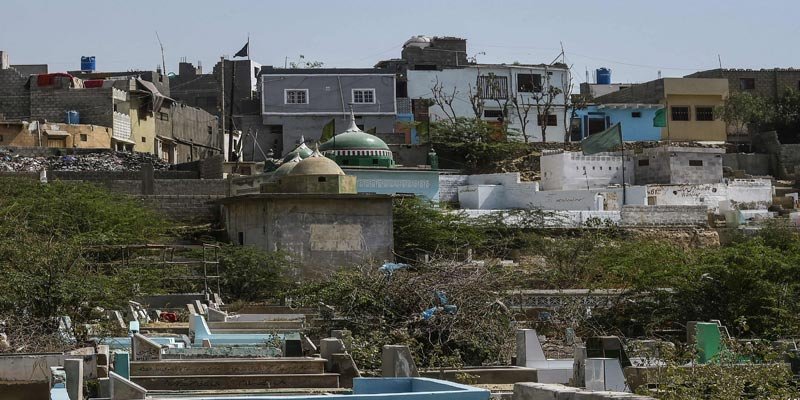Graveyards are filling in Karachi, Pakistan’s largest city, and the deceased are running out of places to be buried.
Shady workmen who demolish old graves to make place for the new in the coastal megacity of 20 million people can “find” a plot for the body of a loved one for the right price to the right person.
For the past five years, the Pakistan Employees Cooperative Housing Society (PECHS) cemetery has been officially full.
The government burial charge in this district is 7,900 Pakistani rupees ($44), but two residents said they paid 55,000 and 175,000 rupees ($305 and $969) respectively to bury a loved one in the PECHS cemetery last year.
“There is no space in Karachi – none of the graveyards have room for [new] funerals,” gravedigger Khalil Ahmed stated.
The fees are split between Ahmed and his colleagues, who are members of the “gravedigger mafia,” as politicians and the media refer to the freelance gravediggers who profit from Pakistan’s changing demographic dynamics by burying individuals where old graves once stood.
With 220 million people, Pakistan is the world’s fifth most populated country, with more than four million people added every year.
People are migrating from the countryside to the metropolis in search of work in order to escape rural poverty as the population expands.
As Karachi’s population grew, Muhammad Aslam saw the “gravedigger mafia” emerge.
When he moved in near the PECHS graveyard in 1953, the 72-year-old claims it was a “deserted spot,” but “space shrank swiftly” as he watched burial prices grow for 14 family members interred over the years.
Aslam’s family paid 50 rupees to bury his grandfather in 1967, but it cost 33,000 rupees to bury a relative killed by the mafia in 2020.
“The fundamental problem is a lack of infrastructure,” said Ali Hassan Sajid, a spokesman for the Karachi Metropolitan Corporation (KMC).
The KMC oversees 39 of the city’s approximately 250 cemeteries, including PECHS. Six of the windows are closed, while the others are “nearly full.”
“The infrastructure in some parts of the city is the same as it was when Pakistan was created,” Sajid said.
He confirms that “gravedigger mafias” are burying people at closed sites and asserts that eviction measures are underway.
The gangs are also thriving in Rawalpindi, Peshawar, and Lahore, according Pakistani reports.
Depending on who you ask, the “gravedigger mafia” is to blame.
Families willing to bury relatives alongside previous generations in full yards, according to Sajid, offer hefty rates, which “lure the gravedigger into succumbing to his greed.”
Ahmed, the gravedigger, claims that he supplies a necessary service in a community unable to run itself in exchange for a meagre income.
While some residents see the practise as a necessary aspect of living in a bustling city, others find it distressing.
The father of Muhammad Abdullah Saif was buried in the PECHS cemetery many years ago.
Today, the tomb is surrounded by empty cement sacks and fractured tombstone cusps — the mafias prefer to demolish untended graves.
“We have to come and visit on a regular basis or the grave would be desecrated,” the 32-year-old added.
Meanwhile, Muzammil Asif must through a maze of ankle-twisting perils in order to reach the tomb of his teenage sister, who was buried here last summer.
“Walking over graves desecrates them,” the 21-year-old complains.
Muhammad Munir, meantime, has suffered a heartbreaking loss in the nearby Korangi cemetery.
Every year, he visits the cemetery where his father is buried, an amphitheatre of crumbling tombstones surrounded by frayed flags.
However, the grave has long since been removed and replaced by another, having been razed more than 20 years ago. That successor is also gone, having been replaced with a new one.
Munir returns every few years to find a new crop of tombstones coated with cement and bearing unfamiliar names. He’s now unaware of his father’s whereabouts.
“It hurts,” he said. “He was last seen in his tomb.”
